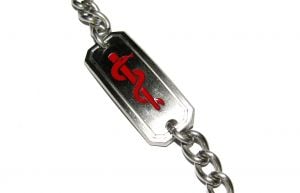Formerly called juvenile-onset or insulin-dependent diabetes, 10 per cent of those diagnosed with diabetes suffer from Type 1. Its symptoms, and the resulting diagnoses, most often occur in childhood or early adolescence, but can strike adults as well.
 Onset
Onset
When a person is diagnosed with type 1 diabetes, it means that their pancreas does not generate insulin. Insulin is a hormone that helps move glucose, a type of sugar, from food into cells to generate energy. Without insulin, too much glucose stays in the blood. Over time, high blood sugar can lead to many serious complications, including:
- Heart disease
- Blindness
- Nerve damage
- Kidney damage
Symptoms and Diagnosis
Symptoms of type 1 diabetes may include:
- Being very thirsty
- Urinating often
- Feeling very hungry or tired
- Losing weight without trying
- Having sores that heal slowly
- Having dry, itchy skin
- Losing the feeling in your feet or having tingling in your feet
- Having blurry eyesight
A blood test can show if diabetes is present. If it is, insulin must be used to control blood sugar levels.
Self-Care and Management Techniques
Although it is a lifelong condition that requires constant treatment and management, there is a lot that can be done in order to prevent further health complications:
1. Make a commitment to diabetes management.
- Learn all you can about type 1diabetes.
- Make healthy eating and physical activity part of your daily routine.
- Establish a relationship with a diabetes educator, and ask the diabetes treatment team for help when needed.
2. Identify yourself.
- Wear a tag or bracelet that says you have diabetes.
- Keep a glucagon kit nearby in case of a low blood sugar emergency — and make sure friends, co-workers and loved ones know how to use it.
3. See doctors often.
Regular diabetes checkups are not meant to replace yearly physicals or routine eye exams.
- Schedule a yearly physical to check for any diabetes-related complications and to screen for other medical problems.
- Schedule regular eye exams to check for signs of retinal damage, cataracts and glaucoma.
4. Keep immunizations current.
High blood sugar can weaken the immune system.
- Get a flu shot every year.
- Get a tetanus booster shot every 10 years.
- Your doctor may recommend the pneumonia vaccine or other immunizations as well.
5 Take care of your teeth.
Diabetes may leave you prone to gum infections.
- Brush your teeth at least twice a day.
- Floss your teeth once a day.
- Schedule dental exams at least twice a year.
- Consult your dentist right away if your gums bleed or look red or swollen.
6. Pay attention to your feet.
High blood glucose from diabetes can cause nerve damage and low blood flow.
- Wash your feet daily in lukewarm water.
- Dry them gently, especially between the toes, and moisturize with lotion.
- Check your feet every day for blisters, cuts, sores, redness or swelling.
- Consult your doctor if you have a sore or other foot problem that doesn't start to heal within a few days.
7. Keep your blood pressure and cholesterol under control.
- Eat healthy foods.
- Exercise regularly.
- Take any prescribed medications.
8. Don’t Smoke.
Smoking increases your risk of various diabetes complications, including heart attack, stroke, nerve damage and kidney disease.
- Smokers who have diabetes are three times more likely to die of cardiovascular disease than non-smokers who have diabetes.
- Talk to your doctor about ways to stop smoking or how to stop using other types of tobacco.
9. Drink Responsibly.
Alcohol can cause either high or low blood sugar, depending on how much you drink and if you eat at the same time. If you choose to drink:
- Do so only in moderation.
- Make sure a meal is included.
- Remember to include the calories from any alcohol you drink in your daily calorie count.
10. Take Stress Seriously.
Stress makes it easy to abandon your usual diabetes management routine. The body’s hormones produced in response to prolonged stress may prevent insulin from working properly, which only makes matters worse. To take control:
- Set limits.
- Prioritize your tasks.
- Learn relaxation techniques.
- Get plenty of sleep.
Did You Know
People with type 1 diabetes need to seek medical help if they become seriously ill from sudden symptoms of high blood sugar (hyperglycemia). This lack of insulin in the blood can be caused by not taking enough insulin or eating too much food. Infection, fever, illness and emotional stress can also cause hyperglycemia.





